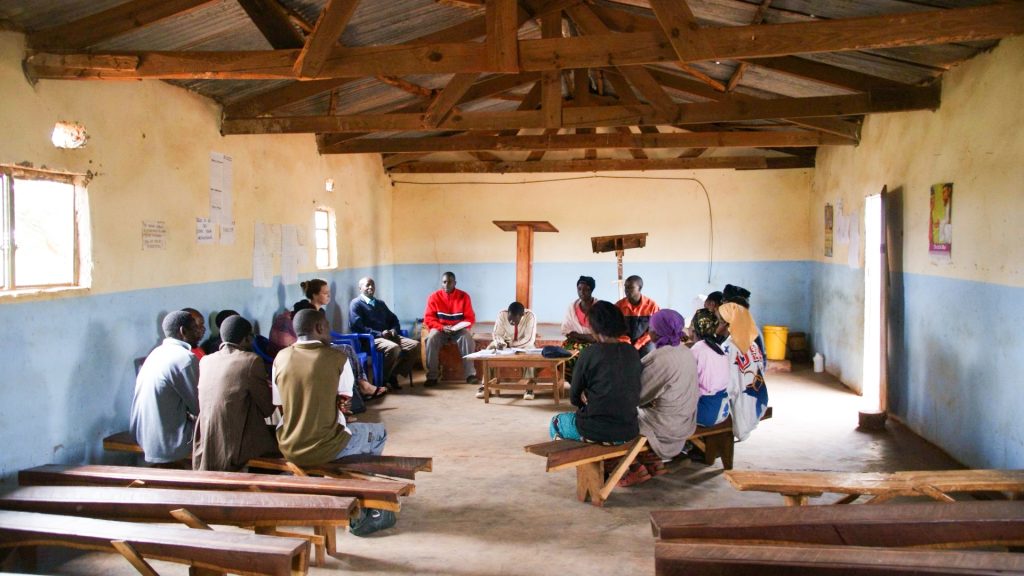Just two hundred years ago, almost the entire world’s population lived in extreme poverty. Today, less than 10 percent do. In the past 40 years alone, the percent of people living in extreme poverty has dropped by over 30 percentage points.
In my years of work in Christ-centered economic development, I have had the privilege of visiting places ranging from the small towns in Haiti to remote villages in northern Afghanistan. And I have come to realize that while poverty runs rampant in our world, the situation in so many communities is unquestionably getting better. The depth and complexities of poverty are not hopeless. The Church is on the move.
Love in Action
Jesus said that the world would know that we are His followers in how we love (John 13:35). And throughout His ministry, we consistently see His steadfast love and care for some of the most marginalized in society: widows, orphans, foreigners, and those living in poverty.
For generations, the Church has recognized the importance of following in Christ’s footsteps to love and care for those on the margins. The Church has run toward those in poverty—showing the world what it stands for and not only what it stands against. Today, there are growing numbers of people and organizations committed to bringing the love of Christ to individuals around the world and empowering whole communities to flourish.
Here are three hopeful trends as the Church addresses global poverty:
-
Stand for local leaders.
Our culture is obsessed with superheroes. In ten years, Marvel movies alone have totaled over $17 billion in the box office worldwide. Unfortunately, this hero-centric perspective translated into our early poverty alleviation efforts as well.
When the Church first came onto the scene of global poverty, we were foreigners trying to play the part of the hero. But in the last few years, there has been a growing realization and repentance for massively underestimating the capacity and competency of the global Church. We’ve seen how infinitely more capable the global team is to engage in long-term effective poverty alleviation.
 We celebrate the fathers and mothers, businesspeople and church leaders affecting change in their neighborhoods. We celebrate the expertise and passion of our brothers and sisters around the world who seek to love and serve their communities with excellence. (Since they know their culture, their resources, and their people better than we do, they tend to do the work better anyway.) And we celebrate because the Church is recognizing its identity as a global Church. We need each other in this mission!
We celebrate the fathers and mothers, businesspeople and church leaders affecting change in their neighborhoods. We celebrate the expertise and passion of our brothers and sisters around the world who seek to love and serve their communities with excellence. (Since they know their culture, their resources, and their people better than we do, they tend to do the work better anyway.) And we celebrate because the Church is recognizing its identity as a global Church. We need each other in this mission!
-
Recognize assets.
Although we might have looked at a person or community in poverty through a needs-based lens in the past, recently we have changed our focus. Instead of seeing “not enough,” we see an individual’s assets, skills, and dreams. Instead of seeing “the poor,” we see a mother with a sewing machine, a passion to make clothes, and a firm determination to provide for her children. Instead of seeing a “needy person,” we see a father with a small field, a knack for farming, and a dream to build a home for his family. We see people as the solution.
 The greatest Gift-Giver of all time entrusted each of us with unique gifts, skills, and abilities. In Romans 12:6, Paul writes that “we have different gifts, according to the grace given to each of us.” What a mistake it would be if we didn’t recognize them in ourselves and in others!
The greatest Gift-Giver of all time entrusted each of us with unique gifts, skills, and abilities. In Romans 12:6, Paul writes that “we have different gifts, according to the grace given to each of us.” What a mistake it would be if we didn’t recognize them in ourselves and in others!
We celebrate the shift from seeing needs to seeing capacity. We celebrate the resourcefulness, diligence, and creativity of our brothers and sisters around the world to transform their communities. We have much to learn from them.
-
Champion employment.
It’s been said that “the world’s best welfare program is a job.” And today, there is a growing cadre of organizations who understand the importance of work.
In their new initiative “Flip the List,” Jobs for Life seeks to transform the way the American Church fights poverty. Right now, the Church pushes back against poverty by handing out food (62 percent), providing housing (55 percent), and giving away clothing (22 percent). Only two percent of the Church’s poverty-alleviation efforts are geared toward employment.
With a mission to equip the Church to prepare individuals for meaningful work, Jobs for Life wants to see all people flourish in their work and relationships.
New Approach, Lasting Change
 The Church is beginning to combat extreme poverty in a more complete way. It focuses on long-term systemic change and lasting employment patterns, not short-term quick fixes. It emphasizes the importance of partnerships and local champions, not external “saviors” descending to solve the problems of those considered less fortunate. The hope of the Gospel is integrated through tangible acts of compassion that have long-term reach.
The Church is beginning to combat extreme poverty in a more complete way. It focuses on long-term systemic change and lasting employment patterns, not short-term quick fixes. It emphasizes the importance of partnerships and local champions, not external “saviors” descending to solve the problems of those considered less fortunate. The hope of the Gospel is integrated through tangible acts of compassion that have long-term reach.
This is a movement where discipleship, job creation, training, and financial services are building on local relationships to empower communities to break free from poverty.
Watch this short video to see how families living in poverty can put their gifts and talents to work and flourish.
Images in descending order: A savings group meeting in Zambia; HOPE staff; Frida, a savings group member in Rwanda; A savings group meeting in the Philippines.
The original version of this article was published in Mission Frontiers magazine.
















Peter – Great article and inspiring look at the impact the Church is having. Keep doing well at doing good!
Hope to run into you again – whether at the airport or locally. 🙂 #heromaker #discipleship #hope #workjesus